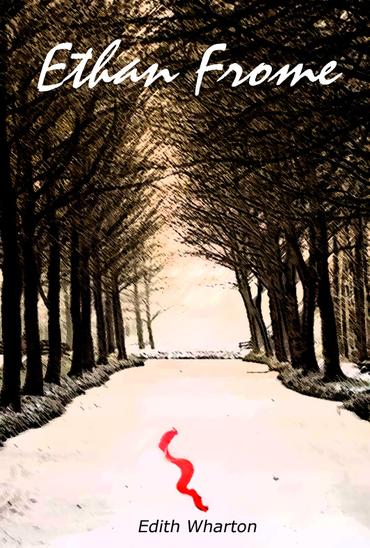Characters:
narratorHarmon GowMrs. Ned Hale (Ruth Varnum)Ned HaleEthan FromeZenobia FromeMattie Silver
In class: today you should have read through chapter 3 (page 58)
vocabulary quiz (handed out last Tuesday)
written response through chapter 3 (class handout / copy below)
for Friday: read through chapter 4 (76) for Tuesday: read through page 149 (chapter 9)Note: on Tuesday, there will be a content quiz
Ethan Frome Vocabulary Words quiz on Thursday, May 24 (another copy below)
In class: review and discussion of Prologue through chapter 2
Characters:
narratorHarmon GowMrs. Ned Hale (Ruth Varnum)Ned HaleEthan FromeZenobia FromeMattie Silver
Frome prologueEthan Frome Vocabulary Words quiz on Thursday, May 24
1. sardonic: adj. Scornfully or cynically mocking; sarcastic.
2. colloquial: adj. 1. Characteristic of or appropriate to the spoken language or to writing that seeks
the effect of speech; informal. 2. Relating to conversation; conversational.
3. innocuous: adj. 1. Having no adverse effect; harmless. 2. Not likely to offend or provoke to strong
emotion; insipid.
4. reticent: adj. 1. Inclined to keep one's thoughts, feelings, and personal affairs to oneself;
Restrained or reserved in style. 3. Reluctant; unwilling.
5. poignant: adj. Keenly distressing to the mind or feelings: poignant anxiety; profoundly moving; touching: a poignant memory.
6. wraith: n. 1. An apparition of a living person that appears as a portent just before that person's
death. 2. The ghost of a dead person. 3. Something shadowy and insubstantial.
7. wistful: adj. 1. Full of wishful yearning. 2. Pensively sad; melancholy.
8. undulation: n. 1. A regular rising and falling or movement to alternating sides; movement in waves.
9. tenuous: adj. 1. Long and thin; slender: tenuous strands. 2. Having a thin consistency; dilute;
having little substance; flimsy: a tenuous argument.
10. throng: n. 1. A large group of people gathered or crowded closely together; a multitude.
throngs v.tr. 1. To crowd into; fill: commuters thronging the subway platform.2. To press in
to gather, press, or move in a throng.
11. vex: (verb) 1. To annoy, as with petty importunities; bother. 2. To cause perplexity in; puzzle.
12. laden: adj. 1. Weighed down with a load; heavy: "the warmish air, laden with the rains of those
thousands of miles of western sea" Hilaire Belloc. 2. Oppressed; burdened: laden with grief.
13. preclude: 1. To make impossible, as by action taken in advance; prevent. 2. To exclude or prevent (someone) from a given condition or activity: Modesty precludes me from accepting the honor.
14. succumb: (verb) 1. To submit to an overpowering force or yield to an overwhelming desire; give up or give in. 2. To die.
15. foist: (verb) 1. To pass off as genuine, valuable, or worthy: "I can usually tell whether a poet . . . is foisting off on us what he'd like to think is pure invention" J.D. Salinger.
2. To impose (something or someone unwanted) upon another by coercion or trickery:They had extra work foisted on them because they couldn't say no to the boss. 3. To insert fraudulently or deceitfully: foisted unfair provisions into the contract.
Thursday,
May 24
Name__________________________________
(the following is based upon having read through chapter 3.
Using your Ethan
Frome text, respond to the following in a well-written paragraph of no
fewer than five syntactically sophisticated sentences.
!. How are
the personalities of Mattie and Zeena reflected in their actions? Weave in textual
evidence as support.
_________________________________________________________________________________________________________________________________________________________________________________________________________________________________________________________________________________________________________________________________________________________________________________________________________________________________________________________________________________________________________________________________________________________________________________________________________________________________________________________________________________________________________________________________________________________________________________________________________________________________________________________________________________________________________________________________________________________________________________________________________________________________________________________________________________________________________________________________________________________________________________________________________________________________________________________________________________________________________________________________________________________________________________________________________________________________________________________________________________________________________________________________________________________________________________________________________________________________________________________________________________________________________________________________________________________________________________________________________________________________________________________________________________________________________________________________________________________________
![“[Ethan] seemed a part of the mute melancholy landscape, an incarnation of its frozen woe, with all that was warm and sentient in him fast bound below the surface; . . . I simply felt that he lived in a depth of moral isolation too remote for casual access, and I had the sense that his loneliness was not merely the result of his personal plight, . . . but had in it, . . . the profound accumulated cold of many Starkfield winters†(Wharton 13). Sarah Bruckner](https://i.pinimg.com/564x/a1/59/c6/a159c657c64f885d3d57f669e4c979da.jpg)










